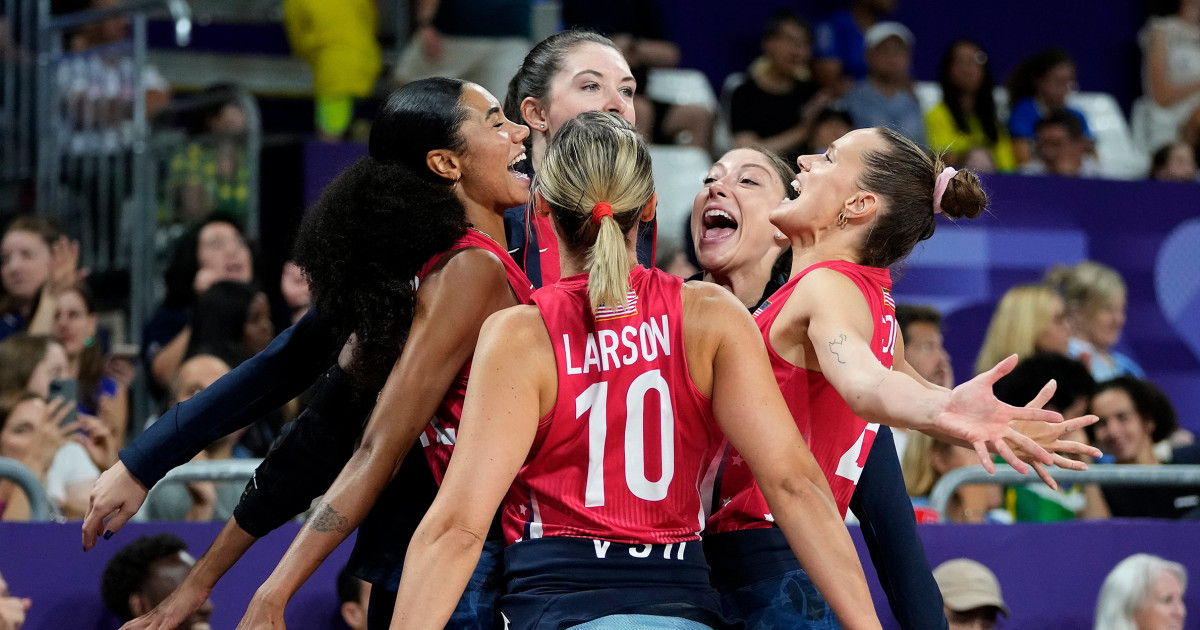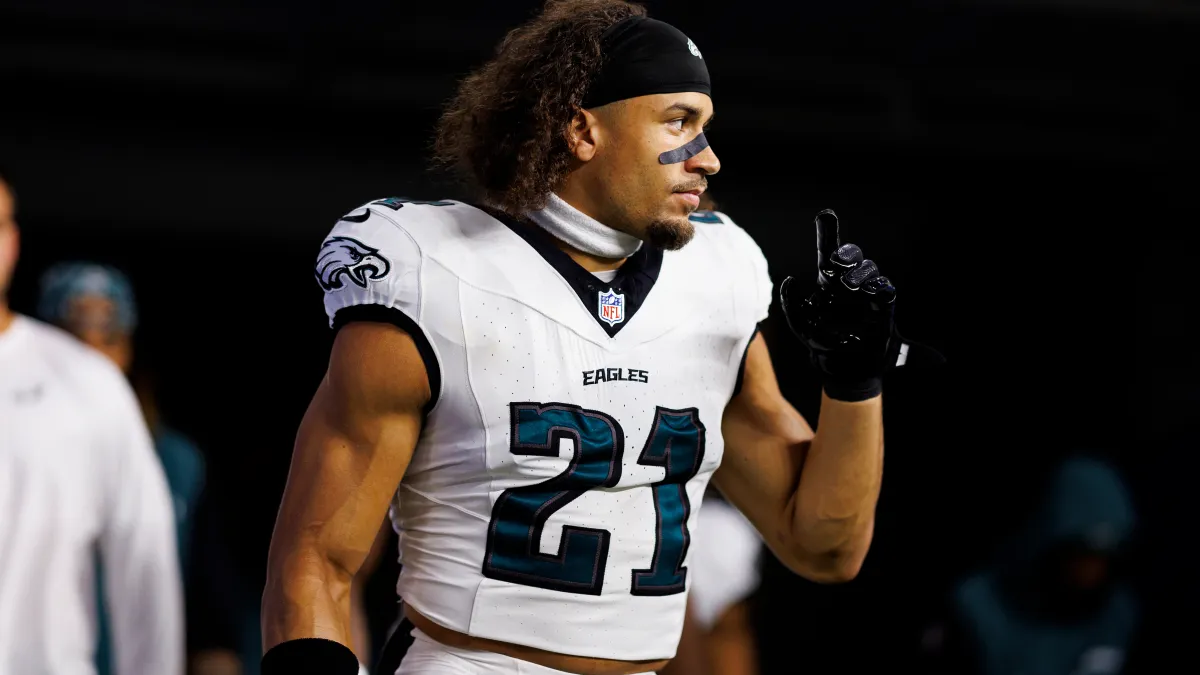Sports
Opinion | It’s time to treat volleyball like the prime-time Olympic sport that it is

The Paris Olympics draw to a close this weekend after two weeks of tragedy and triumph. But while many events (and athletes) have lived up to their top billing, I’d argue one sport remains conspicuously underrated. At a time when women’s sports are having a moment that is turning into a movement, and as the U.S. women’s volleyball team fights for the gold medal on Sunday against Italy, I believe more than ever that volleyball should be a featured sport of the Summer Games.
Volleyball is also one of the only team sports in the U.S. to become mainstream without a more popular male counterpart.
For one thing, volleyball is arguably the only team sport that is quintessentially female. This is a relationship-based sport played with power and athleticism in a noncontact environment defined by interdependence and rapid scoring. It is also incredibly joyous, with encouragement and celebration a defining aspect of every play. There’s a reason that in the 50 years since Title IX opened athletics opportunities, girls have flocked to the court.
Volleyball is also one of the only team sports in the U.S. to become mainstream without a more popular male counterpart. Per the National Federation of State High School Associations, more girls play volleyball than any other sport besides track and field. In August 2023, a college volleyball match drew the largest crowd in the world ever to attend a women’s sporting event as 92,003 fans crowded into Nebraska’s Memorial Stadium to watch Nebraska’s volleyball team beat Omaha in three sets.
Indeed, the popularity of girls volleyball has led to a whole other opportunity for women in the NCAA. In 2012, beach volleyball was added to the NCAA’s “emerging sports” list and just four years later was made a championship sport. Today, almost 180 colleges support varsity beach teams, and the four women who represented the U.S. in Paris are products of American college teams. (Despite entering the Games with high hopes and higher expectations, both women’s beach teams were tragically bounced from the tournament earlier this week.)
Nevertheless, the signs are clear. Volleyball and beach volleyball should be part of the prime-time Olympics rotation.
Volleyball’s underrated status may have something to do with who is covering it. According to Richard Lapchick, chair of the DeVos Sport Business Management Program at the University of Central Florida, over 80% of sports editors, reporters and columnists were still men, at least in 2021.
Nevertheless, we know the interest is there. In December 2023, the NCAA women’s volleyball championship was watched by 1.7 million people, a record for the sport. The Big Ten Network reported that volleyball was its third most popular sport behind football and men’s basketball — and that was back in 2019.
Today, volleyball feels like it’s in the same place soccer was in not that many years ago. Media companies saw an opportunity and invested in coverage of the World Cup, the Premier League and MLS and NWSL matches. Today, most self-respecting sports fans can at least recognize offsides. Lionel Messi is a household name. The same could be true in volleyball — if the sport is given a chance.
Can a women’s team sport not only survive but thrive on its own merits?
Television executives tend to be conventional thinkers and skew toward the risk-averse. But volleyball represents a real test of this burgeoning mainstream embrace of women’s sports. Can it become a success in the broader American marketplace? As an archetypal female sport and arguably the only major team sport not chasing a better funded, more broadly played, more widely understood male counterpart, volleyball is a litmus test. Can a women’s team sport not only survive but thrive on its own merits?
Perhaps we will find out at the 2028 Los Angeles Olympics. Fans and TV executives now have three years to familiarize themselves with hitting percentage, overlaps, and spread, commit and bunch blocking; we have three years to learn the names and the stories of star players like Kathryn Plummer, Jordan Larson, Annie Drews (and beach players like Sara Hughes and Kelly Cheng). But in the meantime, the women’s team needs our support. Their match may not be featured in the prime-time lineup — it starts at 7 a.m. ET — but I know I’ll be watching.








